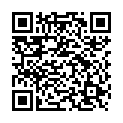|
|
|
| Module code: PIBWI50 |
|
3V+1P (4 hours per week) |
|
5 |
| Semester: 5 |
| Mandatory course: no |
Language of instruction:
German |
Assessment:
Exam
[updated 14.05.2025]
|
PIBWI50 Applied Informatics, Bachelor, ASPO 01.10.2011
, semester 5, optional course, informatics specific
PIB-PRG4 (P221-0123) Applied Informatics, Bachelor, ASPO 01.10.2022
, semester 4, optional course, informatics specific
PIB-PRG4 (P221-0123) Applied Informatics, Bachelor, SO 01.10.2026
, semester 4, optional course, informatics specific
PRI-PRG4 Production Informatics, Bachelor, SO 01.10.2023
, semester 4, optional course, informatics specific
PRI-PRG4 Production Informatics, Bachelor, SO 01.10.2026
, semester 4, optional course, informatics specific
|
60 class hours (= 45 clock hours) over a 15-week period.
The total student study time is 150 hours (equivalent to 5 ECTS credits).
There are therefore 105 hours available for class preparation and follow-up work and exam preparation.
|
Recommended prerequisites (modules):
PIB120 Programming 1
PIB210 Programming 2
PIB320 Software Engineering 1
PIB413 Programming 3
[updated 05.11.2016]
|
Recommended as prerequisite for:
PIBWI63 GUI Programming with Qt
[updated 13.02.2015]
|
Module coordinator:
Prof. Dr.-Ing. Martin Burger |
Lecturer:
Prof. Dr. Helmut Folz
[updated 05.11.2016]
|
Learning outcomes:
After successfully completing this module, students will:
• be proficient in the basic language concepts (data types, expressions, control structures, functions, exception handling) of C++.
• be proficient in the special C++ concepts of object orientation (classes, objects, inheritance, polymorphism) and be able to implement them in programming terms.
• be capable of using function and class templates in programs.
• be able handle basic classes and algorithms of the C++ standard library (e. g. strings, input/output, container classes, generic algorithms) confidently.
• be able to develop solutions to difficult problems in small teams and implement them in a well-structured manner.
[updated 14.05.2025]
|
Module content:
The course will introduce students to structured, object-oriented and generic programming with C/C++. C/C++ language elements will be introduced and their use practiced in exercises on the basis of the knowledge imparted in the Programming 1-3 modules. The use of the C/C++ standard library will be emphasized.
1. Introduction
- History
- Use
- Development of C/C++ programs
- A comparison of C++ and Java
2. The basics
2.1 The basics and data types
2.2 Arithmetic
2.3 Type transformations
2.4 Control structures
3. Functions and structures
3.1 Functions and references
3.2 Structures
3.3 Preprocessor directives
4. Data types
4.1 Enums and arrays
4.2 C strings
4.3 The string class
4.4 Pointers
5. In/Output
5.1 In/Output
5.2 Input/Output formatting
5.3 File handling
6. Classes
6.1 Structure of classes
6.2 Using Doxygen
6.3 Copy constructor and assignment operator
6.4 Class attributes and methods
6.5 Friends
7. Overloading operators
7.1 Overloadable operators
7.2 A rational number class
7.3 Various applications
7.4 Smart pointer
8. Inheritance
8.1 Introduction
8.2 Virtual functions
8.3 Copy constructor and assignment operator
8.4 Abstract classes
8.5 Multi inheritance
8.6 The dynamic_cast operator
9. Exception handling
10. Templates
10.1 Function templates
10.2 Class templates
11. Standard template library
11.1 Introduction
11.2 Sequence containers
11.3 Iterators and algorithms
11.4 Associative containers
12. Runtime Type Information (RTTI)
[updated 14.05.2025]
|
Teaching methods/Media:
Transparencies, projector, lecture-specific homepage
[updated 24.02.2018]
|
Recommended or required reading:
Breymann, Ulrich: Der C++ Programmierer. C++ lernen - Professionell anwenden - Lösungen nutzen., Hanser-Verlag
Stroustrup, Bjarne: Einführung in die Programmierung mit C++, Pearson Studium
Eckel, Bruce: Thinking in C++; Second Edition; Prentice Hall: www.bruceeckel.com
Grimm, Rainer: C++11: Der Leitfaden für Programmierer zum neuen Standard Addison-Wesley
Will, Torsten T.: C++11 programmieren: 60 Techniken für guten C++11-Code Galileo Computing;
Meyers, Scott: Effektiv C++ programmieren: 55 Möglichkeiten, Ihre Programme und Entwürfe zu verbessern; Addison-Wesley
Schäling, Boris: The Boost C++ Libraries; Xml Press
Bjarne Stroustrup"s C++ Style and Technique FAQ: http://www.stroustrup.com/bs_faq2.html
The C++ Resources Network: http://www.cplusplus.com/
C++ Reference: http://www.cppreference.com
Boost-Library: http://www.boost.org/
[updated 14.05.2025]
|
Module offered in:
WS 2018/19,
WS 2017/18,
WS 2016/17,
WS 2015/16,
WS 2014/15,
...
|


